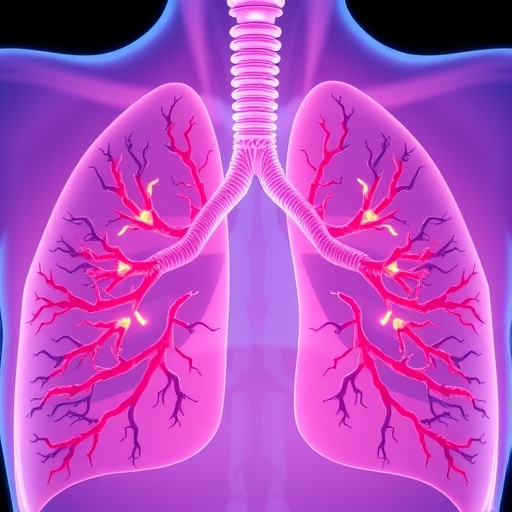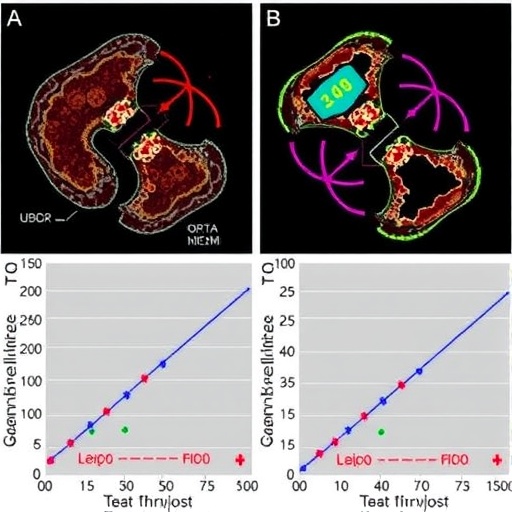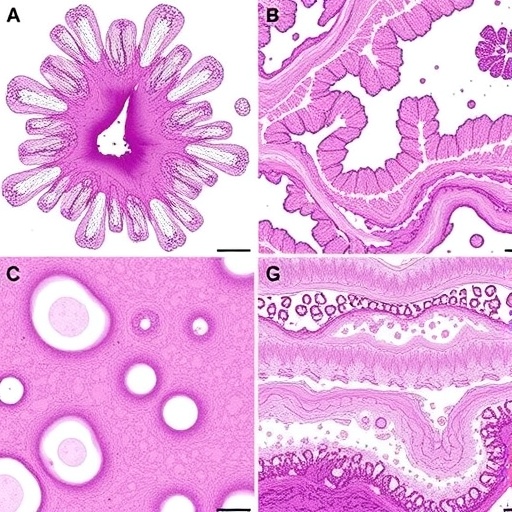PROTECT YOUR DNA WITH QUANTUM TECHNOLOGY
Orgo-Life the new way to the future Advertising by AdpathwayIn recent years, the field of cancer research has witnessed a major transformation with the advent of advanced molecular techniques that have enabled scientists to unveil previously hidden regulatory mechanisms underlying tumorigenesis. One of the most noteworthy findings in this realm is the role of RNA methylation in hepatocellular carcinoma (HCC), a predominant form of liver cancer. As researchers delve deeper into the intricacies of RNA modifications, it becomes increasingly clear that these epitranscriptomic changes are not merely functional annotations but are essential drivers of cellular behavior in cancerous environments.
RNA methylation refers to the addition of methyl groups to RNA molecules, which can influence a variety of post-transcriptional processes. This modification has garnered attention for its broad impact on gene expression, stability, localization, and translational efficiency. Particularly in the context of HCC, scientists have begun to uncover how altered RNA methylation patterns contribute to the malignancy of liver cells. The implications of this research extend beyond basic science, potentially transforming the landscape of therapeutic strategies tailored for patients afflicted with this aggressive cancer.
One of the prevailing themes in the study of RNA methylation is its nexus with metabolic reprogramming. Cancer cells often undergo a dramatic shift in metabolism to sustain their rapid proliferation and survival. This altered metabolic state is not occurring in isolation but is intricately woven with the epitranscriptomic landscape. The modification of RNA can directly influence the expression of metabolic enzymes and substrate transporters, thereby providing cancer cells with a selective advantage. Understanding how RNA methylation facilitates these metabolic changes may unveil new targets for intervention, potentially disrupting the metabolic dependencies that cancer cells exploit.
Moreover, RNA methylation plays a pivotal role in immune escape mechanisms, a crucial aspect that allows tumors to evade detection and destruction by the host immune system. By manipulating the expression of immunogenic proteins and modulating the inflammatory response, cancer cells can create a microenvironment conducive to tumor growth. Insights into how RNA methylation contributes to this immune evasion could inform the development of novel immunotherapeutic strategies aimed at reversing this phenomenon. Targeting specific methyltransferases or demethylases could potentially reinstate the immunogenicity of tumor cells, rendering them more susceptible to immune-mediated destruction.
Within the broader context of targeting RNA modifications, the development of small molecule inhibitors presents a tantalizing opportunity. These inhibitors could modulate RNA methylation processes directly, thereby restoring normal cellular function in malignant contexts. Recent advances in medicinal chemistry have led to the design of small molecules that selectively inhibit specific methyltransferases involved in oncogenic pathways. By strategically disrupting RNA methylation in HCC, researchers could potentially rein in the malignancy and create a more favorable response to existing therapies.
In addition to small molecule inhibitors, the therapeutic landscape is enriched by the exploration of RNA-targeted therapies. Researchers are increasingly turning to approaches that leverage the specificity of RNA interactions in a manner analogous to how traditional gene therapies function. Utilizing engineered RNA molecules that can modulate the expression of oncogenes or restore tumor suppressor function offers a compelling strategy in combating HCC. The potential for RNA-based therapies to provide precise interventions makes them an attractive avenue for research and development in the fight against cancer.
As progress accelerates in understanding the nuances of RNA methylation in HCC, collaborative efforts between researchers, clinicians, and pharmaceutical developers are essential. Interdisciplinary teams must work collectively to translate these findings into clinically relevant applications. The insights garnered from basic science must be communicated effectively in clinical settings, where they can inform patient care strategies and clinical trial designs.
The integration of RNA methylation research into clinical practice signifies a paradigm shift in how HCC is approached holistically. As we refine our understanding, it becomes clearer that managing liver cancer extends beyond conventional methods. The incorporation of RNA epitranscriptomics into routine diagnostics and treatment protocols will empower healthcare providers to offer personalized therapies, significantly improving outcomes for patients with HCC.
However, challenges remain in the practical translation of these scientific insights into effective treatments. The complexity of RNA modifications and their consequences for cellular behavior necessitate rigorous validation through preclinical models and subsequent clinical trials. Only through meticulous research can we ensure that emerging therapies will achieve the desired efficacy and safety profiles required for successful patient outcomes.
As the scientific community continues to unravel the layers of regulation conferred by RNA methylation, the potential to redefine therapeutic strategies within hepatocellular carcinoma becomes more tangible. The confluence of metabolic regulation, immune dynamics, and RNA biology presents a multifaceted battleground for therapeutic intervention. Ultimately, understanding RNA modifications will open new avenues not only for treating liver cancer but for reshaping our overall approach to cancer therapeutics.
The journey to unlocking the full potential of RNA methylation in the context of HCC will require persistent inquiry and innovation. Researchers must maintain an unwavering commitment to exploration while rigorously interrogating the fundamental mechanisms at play. As insights deepen, the translation of these discoveries into therapeutic paradigms will pave the way towards better prognosis and survival rates for individuals facing this formidable disease.
In summary, the investigation of RNA methylation in hepatocellular carcinoma encapsulates a vibrant intersection of cancer biology and therapeutic innovation. The advances in this field promise to enrich our understanding and equip us with novel tools to combat HCC, ultimately leading towards a future where tailored treatments stem from the molecular foundations of cancer. Each step taken in this direction embodies a significant development in our quest to improve the lives of those impacted by this relentless disease.
Subject of Research: RNA methylation in hepatocellular carcinoma and its implications for metabolic reprogramming, immune escape mechanisms, and small molecule inhibitors.
Article Title: RNA methylation in hepatocellular carcinoma: from metabolic reprogramming and immune escape mechanisms to small molecule inhibitor development.
Article References:
Xu, Y., Lan, F., Yang, C. et al. RNA methylation in hepatocellular carcinoma: from metabolic reprogramming and immune escape mechanisms to small molecule inhibitor development.
J Transl Med 23, 1022 (2025). https://doi.org/10.1186/s12967-025-07026-9
Image Credits: AI Generated
DOI: 10.1186/s12967-025-07026-9
Keywords: RNA methylation, hepatocellular carcinoma, metabolic reprogramming, immune escape, small molecule inhibitors, cancer therapeutics.
Tags: cancer research advancementscellular behavior in cancerepitranscriptomics and tumorigenesisgene expression regulation in cancerhepatocellular carcinoma mechanismsliver cancer therapeutic strategiesmetabolic reprogramming in HCCpost-transcriptional RNA modificationsRNA methylation impact on translational efficiencyRNA methylation in liver cancerRNA methylation inhibitorsRNA modifications and malignancy


 6 hours ago
10
6 hours ago
10





















 English (US) ·
English (US) ·  French (CA) ·
French (CA) ·